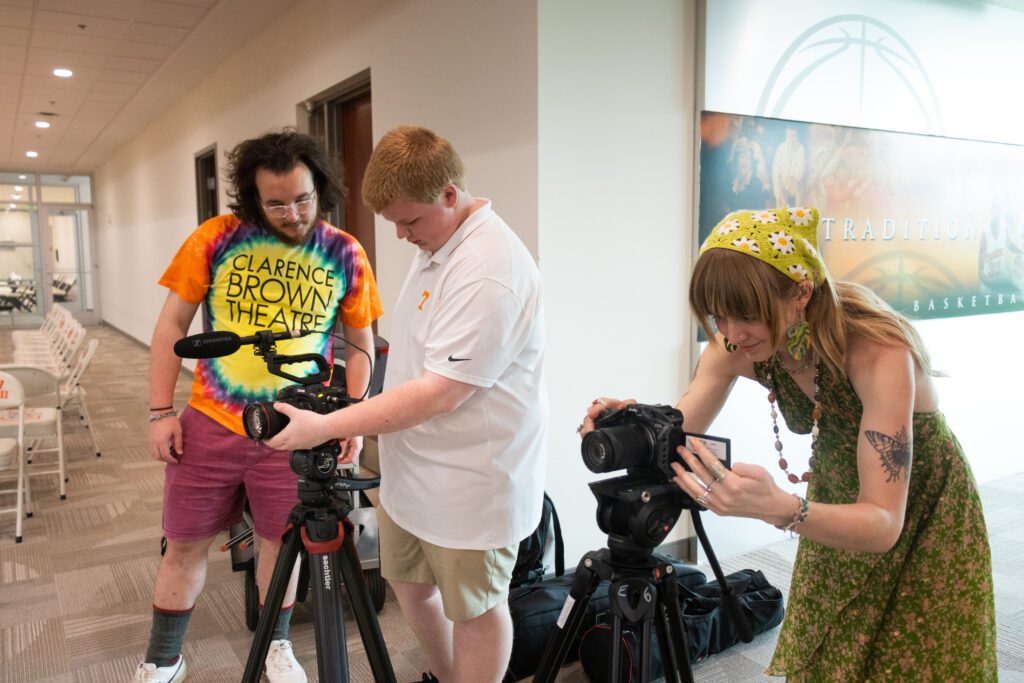test
- test
Title of Accordion block
This is some content inside the accordion block
Second
Data pattern H3 not
Data Pattern
Second Accordion
Some stuff would go here

Heading H3

Heading H2

Heading H3

Heading H2

Heading H3

Heading H2

Heading H3

Heading H2

Heading H3

Heading H4

Heading H2

Heading H3

Heading H4

Heading H2

Heading H3

Heading H4

Heading H2

Heading H3

Heading H4
Contact 2up white
Lorem ipsum dolor sit amet, consectetur adipiscing elit. Donec gravida dui a aliquet egestas. Class aptent taciti sociosqu ad litora torquent per conubia nostra
Lorem ipsum dolor sit amet, consectetur adipiscing elit. Donec gravida dui a aliquet egestas. Class aptent taciti sociosqu ad litora torquent per conubia nostra
Person Name
Title
Name of College


Public Relations
If you enjoy working with people and planning strategic communications, public relations has dynamic career options for someone just like you.
Studying agriculture and natural resources programs at UT
The classroom and beyond
As a future agriculture and natural resources student, you will be supported by faculty mentors and professional academic advisors as you navigate your program and goals. Our average student-to-faculty ratio in these programs is 12 to 1, so you’ll receive close instruction from caring professors invested in your achievements.
Not only will you gain valuable knowledge inside the classroom, you’ll also have the opportunity to take part in experiential learning at UT. Students in food science, for example, spend hours in the lab learning the qualities and composition of food. Vols can also work at the UT Creamery where they’re taught about ice cream production, manufacturing, and more!
Students in this study area often get to participate in competitions and attend conferences depending on their programs and involvement. One of our environmental soil science students placed third at the 2023 National Collegiate Soils Contest. UT’s Livestock Judging team not only traveled to 20 states to compete and train, they also placed High Team Overall, High Team Sheep Overall, second in High Team Swine Overall, and fifth High Team Cattle Overall at the All-East Judging Competition.
Grow as a professional
Research opportunities
As an R1 research institute, Volunteers have abundant opportunities to get involved in research. Undergraduate students can enroll in research courses dedicated to a topic in almost every program, and graduate students have the opportunity to conduct research alongside specialized staff and 650 PhD faculty.
Vols have also been known to earn prestigious research grants and fellowships. Students have received the Sustainable Agriculture Research and Education grant and the National Science Foundation’s Graduate Research Fellowship. And they have been chosen for the Foundation for Food and Agriculture Research Fellows Program, to name a few.
Agriculture and natural resources internships
For students studying agriculture and natural resources, no two internships are the same. You may gain real-world experience with the Tennessee Wildlife Resources Agency. Or perhaps you’ll intern with a Smith Center partner, Zamura Holding Company, in Rwanda where you might work on projects that convert waste to fuel. Maybe you’ll get to learn about international agricultural trade from experts through an internship with the UN World Food Programme.
Learn around the world
UT’s Institute of Agriculture is positioned as the go-to organization for global engagement in the agricultural-related sciences among U.S. land-grant institutions. Through the Smith Center for International Sustainable Agriculture, students have the chance to be global change agents. Maybe you’ll volunteer with Farmer-to-Farmer (F2F) and travel to Cambodia to implement improved methods for producing clean planting material or share knowledge about soil management.
All Vols have the opportunity to study abroad. Students have gone to places like Argentina where they’ve learned about farming models and horticultural markets; Mexico where they’ve focused on coffee production and received related training; and Belize where they participated in a variety of programs and research projects with focuses like agroforestry, small animal veterinary medicine, and wildlife and fisheries.
Lorem ipsum dolor sit amet, consectetur adipiscing elit. Donec gravida dui a aliquet egestas. Class aptent taciti sociosqu ad litora torquent per conubia nostra
Person Name
Title
Name of College
Lorem ipsum dolor sit amet, consectetur adipiscing elit. Donec gravida dui a aliquet egestas. Class aptent taciti sociosqu ad litora torquent per conubia nostra
Person Name
Title
Name of College
Lorem ipsum dolor sit amet, consectetur adipiscing elit. Donec gravida dui a aliquet egestas. Class aptent taciti sociosqu ad litora torquent per conubia nostra


Content cards
AI 101 – Introduction to the World of AI
This course introduces the foundational concepts, techniques, and applications of Artificial Intelligence (AI) relevant for all disciplines – especially across non-computer science fields. Explore the history and current scope of AI, data sources and tools, and fundamental components of AI solutions and gain experience through hands-on activities using no-code AI platforms.
AI 102 – Natural Language-Based Programming Techniques
Explore the dynamic world of Natural Language Processing (NLP) and its intersection with programming. Learn to manipulate, analyze, and interpret human language through computational methods. Learn about basic string processing, text normalization techniques, and delve into tokenization, stemming, and lemmatization.
CYBR 101 – Introduction to Cybersecurity Concepts
Develop a broad overview of cybersecurity concepts, including the nature of cyber attacks and the identification and mitigation of attacks from the perspective of applications in real-world scenarios and sectors. Discuss ethics, privacy, and the governance and policy around cybersecurity as well as terminology, approaches, and underlying technologies used in cybersecurity.
AI 101 – Introduction to the World of AI
This course introduces the foundational concepts, techniques, and applications of Artificial Intelligence (AI) relevant for all disciplines – especially across non-computer science fields. Explore the history and current scope of AI, data sources and tools, and fundamental components of AI solutions and gain experience through hands-on activities using no-code AI platforms.
AI 102 – Natural Language-Based Programming Techniques
Explore the dynamic world of Natural Language Processing (NLP) and its intersection with programming. Learn to manipulate, analyze, and interpret human language through computational methods. Learn about basic string processing, text normalization techniques, and delve into tokenization, stemming, and lemmatization.
CYBR 101 – Introduction to Cybersecurity Concepts
Develop a broad overview of cybersecurity concepts, including the nature of cyber attacks and the identification and mitigation of attacks from the perspective of applications in real-world scenarios and sectors. Discuss ethics, privacy, and the governance and policy around cybersecurity as well as terminology, approaches, and underlying technologies used in cybersecurity.
Contact Single
AI 101 – Introduction to the World of AI
This course introduces the foundational concepts, techniques, and applications of Artificial Intelligence (AI) relevant for all disciplines – especially across non-computer science fields. Explore the history and current scope of AI, data sources and tools, and fundamental components of AI solutions and gain experience through hands-on activities using no-code AI platforms.
Phone
AI 101 – Introduction to the World of AI
This course introduces the foundational concepts, techniques, and applications of Artificial Intelligence (AI) relevant for all disciplines – especially across non-computer science fields. Explore the history and current scope of AI, data sources and tools, and fundamental components of AI solutions and gain experience through hands-on activities using no-code AI platforms.
AI 102 – Natural Language-Based Programming Techniques
Explore the dynamic world of Natural Language Processing (NLP) and its intersection with programming. Learn to manipulate, analyze, and interpret human language through computational methods. Learn about basic string processing, text normalization techniques, and delve into tokenization, stemming, and lemmatization.
CYBR 101 – Introduction to Cybersecurity Concepts
Develop a broad overview of cybersecurity concepts, including the nature of cyber attacks and the identification and mitigation of attacks from the perspective of applications in real-world scenarios and sectors. Discuss ethics, privacy, and the governance and policy around cybersecurity as well as terminology, approaches, and underlying technologies used in cybersecurity.
AI 101 – Introduction to the World of AI
This course introduces the foundational concepts, techniques, and applications of Artificial Intelligence (AI) relevant for all disciplines – especially across non-computer science fields. Explore the history and current scope of AI, data sources and tools, and fundamental components of AI solutions and gain experience through hands-on activities using no-code AI platforms.
AI 101 – Introduction to the World of AI
This course introduces the foundational concepts, techniques, and applications of Artificial Intelligence (AI) relevant for all disciplines – especially across non-computer science fields. Explore the history and current scope of AI, data sources and tools, and fundamental components of AI solutions and gain experience through hands-on activities using no-code AI platforms.
AI 101 – Introduction to the World of AI
This course introduces the foundational concepts, techniques, and applications of Artificial Intelligence (AI) relevant for all disciplines – especially across non-computer science fields. Explore the history and current scope of AI, data sources and tools, and fundamental components of AI solutions and gain experience through hands-on activities using no-code AI platforms.
- Agriculture and natural resources
- Architecture and design
- Art and performance
- Business
- Communication and information sciences
- Education
- Engineering, math, and computers
- English and literature
- Health, wellness, and, human sciences
- Languages, cultures, and humanities
- Law and justice
- Science
- Social science and social work
- Veterinary
- Agriculture and natural resources
- Architecture and design
- Art and performance
- Business
- Communication and information sciences
- Education
- Engineering, math, and computers
- English and literature
- Health, wellness and human sciences
- Languages, cultures, and humanities
- Law and justice
- Science
- Social science and social work
- Veterinary
